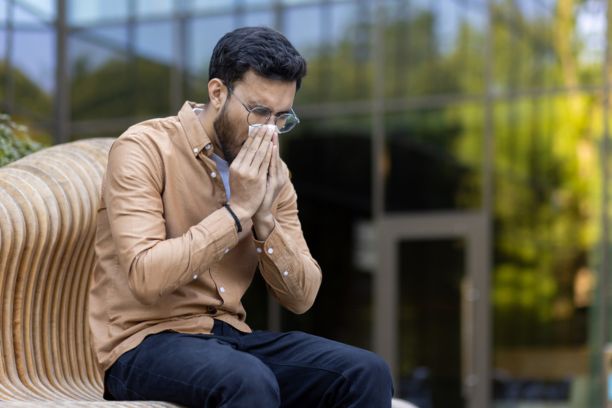If you’re one of the millions of Australians who suffer from hay fever, you know how frustrating it can be. Sneezing, itchy eyes, a runny nose, and fatigue can make even the simplest tasks feel exhausting.
The good news? Your local community pharmacy can help you manage your symptoms whenever you feel unwell. The earlier you get advice from your community pharmacy to reduce inflammation the better your symptoms can be controlled.
What is hay fever?
Hay fever, also known as allergic rhinitis, is an allergic reaction to airborne allergens like pollen, dust mites, mould, or pet dander. It’s especially common during spring and summer when pollen levels are high, but it can affect people year-round.
How to stop hay fever symptoms
Managing hay fever starts with understanding your triggers and choosing the right treatment. Here are some practical tips that actually work:
1. Avoid your triggers
- Keep windows closed during high pollen days.
- Shower and change clothes after being outdoors.
- Use air purifiers and regularly clean surfaces to reduce dust and allergens.

2. Use the right treatments
There are several hay fever treatments available in community pharmacies, including:
- Antihistamines – help relieve sneezing, runny nose, and itchy eyes.
- Nasal sprays – reduce inflammation and congestion.
- Eye drops – soothe itchy, watery eyes.
- Decongestants – provide short-term relief from blocked noses.
Your community pharmacist can help you choose the right product based on your symptoms and lifestyle.
3. Get personalised advice
Some community pharmacies offer tailored advice and support for hay fever sufferers. Whether you need help identifying your triggers or want to explore treatment options, visiting your pharmacist is a great first stop.
To find a community pharmacy near you that offers hay fever support, visit the Find a Pharmacy allergy services page.
What to expect from hay fever treatment in pharmacies
When you visit a community pharmacy for hay fever support, you can expect:
- A consultation to understand your symptoms
- Recommendations for over-the-counter treatments
- Advice on how to use products correctly
- Tips for managing symptoms long-term
- No appointment needed—just walk in and ask your pharmacist.
When symptoms persist
If your hay fever symptoms are severe or don’t improve with treatment, your community pharmacist can guide you on next steps. They may recommend a different product or suggest keeping a symptom diary to better understand your triggers.
Don’t let hay fever hold you back. Visit your local community pharmacy today and get expert advice on managing your symptoms.

